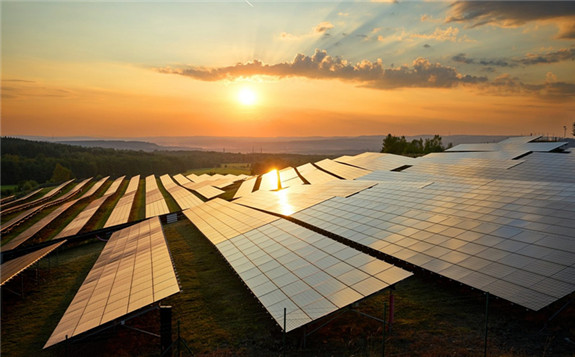The UK has set a new 2035 target for fully decarbonising the electricity system following a tumultuous period for the sector.

Confirmed this week by Prime Minister Boris Johnson and energy secretary Kwasi Kwarteng, it brings the decarbonisation deadline forward by 15 years. Previously, both the energy white paper and the 10 point plan had set out roadmaps for a net zero electricity system by 2050, matching the nation's wider net zero target.
The country will need to double down on the rollout of green generation technologies to hit this new goal, with offshore wind, hydrogen and solar, as well as nuclear, onshore wind and carbon capture and storage (CCS) all identified as key.
This sentiment was echoed during the Conservative Party Conference this week, when Johnson said there needed to be a key focus on “skills, skills, skills” to “help to cut the cost of living for everyone because housing, energy, transport are now huge parts of our monthly bills".
“It is by fixing our broken housing market, by sorting out our energy supply – more wind, more nuclear, becoming less dependent on hydrocarbons from abroad by putting in those transport links - we will hold costs down and save you money.”
Johnson was expected to confirm the 2035 target within his speech, after a copy was seen by The Times newspaper last weekend, however he failed to mention it during his address to the conference on Wednesday. In September, 13 businesses wrote to Kwarteng to call for the 2035 target, suggesting it would require new investment in renewable energy of £14 billion annually.
The new target follows a particularly turbulent period in the UK’s energy market, with spiking wholesale electricity prices causing UK power prices to triple year-on-year from £36/MWh in August 2020 to £107/MWh in August 2021. This is becoming an increasing cause for concern, as nine small suppliers shuttered in September alone amidst the constraints.
A global gas shortage has been a particularly key factor in this growth, with gas prices rising 250% between the beginning of 2021 and September. Fossil fuels costs account for 86% of UK electricity price increases, recent research from thinktank Ember found. With the fossil fuel meeting 37% of Britain’s electricity demand last year, the impact of such surges are felt particularly acutely.
This has increasingly caused many to push for more domestic energy production to mitigate against future gas supply uncertainty, in particular as the UK moves into winter, with tight margins expected over the period.
Kwarteng said: “Recent volatile gas prices have also demonstrated how the way to strengthen Britain’s energy security, ensure greater energy independence and protect household energy budgets in the long-term is through clean power that is generated in this country for the people of this country.”
Britain’s electricity network has already come a long way in terms of decarbonisation, with the share of low-carbon electricity generation rising to 59.3% in 2020, with renewables at a record 43.1%. In particular, it has moved away from coal and in June moved forward the target of a coal-free grid to 2024.
The energy sector in the UK has welcomed the new target as a “positive commitment”, but called for substantive policy to back it up.
Dr Nina Skorupska CBE, chief executive of the association for Renewable Energy and Clean Technology (REA), said: “Firm, long-term policy is now needed to ensure that this target is met including; regular Contracts for Difference auctions; routes to market for large scale energy storage and bioenergy with carbon capture and storage (BECCS); plus a grid that appropriately rewards flexibility. We look forward to receiving the upcoming Net Zero Strategy in the coming weeks and hope that it will provide detailed and wide-ranging support for all renewables and clean technologies.”
Earlier this week, trade body Regen also called for an increase in Contracts for Difference auctions to reach this 2035 target. As part of this, it called on the government to double the capacity for Pot One technologies – onshore solar and wind which are considered established technologies – in the next auction to 10GW.